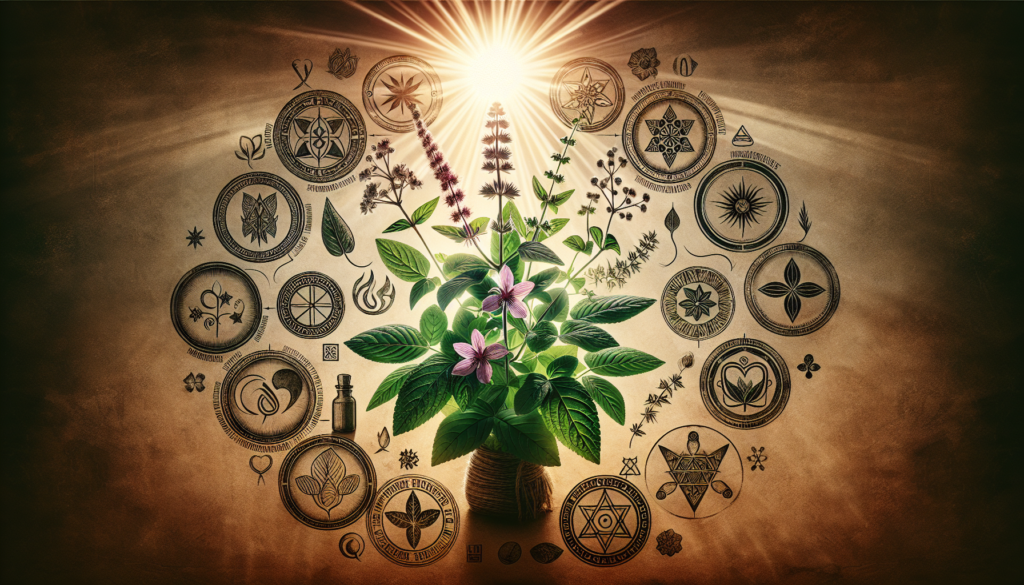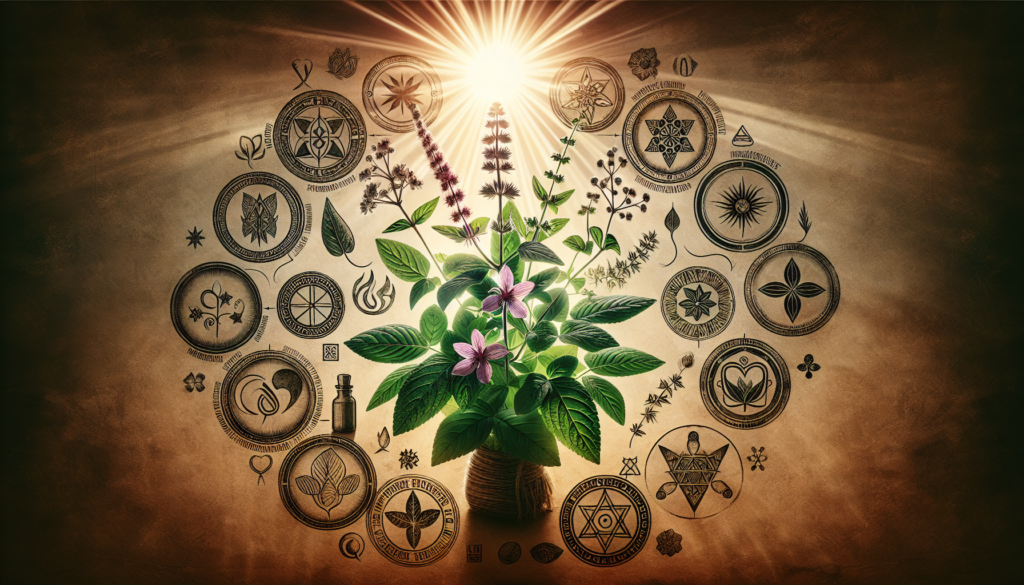So you’re curious about the most potent medicinal herb out there, huh? Well, you’re in for a treat because in this article, we’ll be exploring the incredible world of herbs and uncovering the one plant that stands above them all in terms of its healing powers. Prepare to have your mind blown as we unravel the secrets of this enigmatic herb and learn how it has been used for centuries to treat a wide range of ailments. Get ready to discover a natural remedy that could be the answer to your health woes. Buckle up and let’s dive into the world of medicinal herbs!

Benefits of Medicinal Herbs
Overview of Medicinal Herbs
Medicinal herbs have been used for centuries to promote health and treat various ailments. These plants contain compounds that have therapeutic properties and can provide numerous health benefits. Whether it’s ginger, turmeric, garlic, echinacea, or ginseng, each herb offers unique medicinal properties that can support your well-being.
Traditional use of herbs
Before scientific research and modern medicine, medicinal herbs were relied upon by ancient civilizations as primary remedies. Traditional practices from different cultures have passed down knowledge on the healing properties of herbs, highlighting their effectiveness in treating common health issues. These age-old practices have contributed to the development of natural remedies and alternative medicine.
Scientific research on medicinal herbs
In recent years, scientific research has extensively studied the medicinal properties of herbs. Numerous studies have investigated the chemical composition, therapeutic potential, and health benefits associated with these plants. The growing interest in natural remedies has led to a deeper understanding of how medicinal herbs can impact our well-being, providing a bridge between traditional knowledge and modern medicine.
Factors Determining Herb Potency
Chemical Composition
The chemical composition of an herb greatly influences its potency. Different compounds, such as phytochemicals, alkaloids, flavonoids, and essential oils, can contribute to the therapeutic effects of an herb. The concentration and combination of these active compounds determine the herb’s overall effectiveness in promoting health and addressing specific conditions.
Plant Part Used
The specific part of the plant used can also play a role in determining its potency. Some herbs may have different concentrations of active compounds in their leaves, stems, roots, or flowers. For example, ginger root is known for its strong medicinal properties, while ginger leaves may have a milder effect. Understanding the ideal plant part to use for medicinal purposes is essential in harnessing an herb’s full potential.
Growing Conditions
The environment in which an herb is grown can impact its potency. Factors such as soil quality, climate, and exposure to sunlight can affect the concentration of beneficial compounds in the plant. Proper growing conditions, with adequate nutrients and the absence of pesticides or pollutants, can enhance the herb’s potency and ensure its optimal therapeutic benefits.
Harvesting and Processing
The way herbs are harvested and processed can greatly influence their potency. Timing is crucial, as harvesting herbs at the right stage of growth can maximize their active compound content. Additionally, the method of processing, whether it involves drying, grinding, or extraction, can impact the stability and bioavailability of the herb’s compounds. Proper harvesting and processing techniques are essential in preserving the medicinal properties of herbs.
Common Medicinal Herbs
Ginger
Ginger is a popular medicinal herb known for its unique flavor and therapeutic properties. It has been used in traditional medicine to alleviate digestive issues, reduce inflammation, and relieve nausea. Ginger contains active compounds such as gingerol and shogaol, which have antioxidant and anti-inflammatory effects. Its potent medicinal properties make it a versatile herb for promoting overall health and well-being.
Turmeric
Turmeric, commonly used as a spice, is another powerful medicinal herb. It contains a compound called curcumin, which has strong anti-inflammatory and antioxidant properties. Turmeric has been traditionally used to support joint health, boost the immune system, and improve digestion. Its vibrant yellow color is an indication of its potent medicinal properties, making it a valuable herb for various health benefits.
Garlic
Garlic is not only a delicious culinary ingredient but also a potent medicinal herb. It is rich in organosulfur compounds, particularly allicin, which gives garlic its distinct aroma and medicinal properties. Garlic has been used historically for its antimicrobial, anti-inflammatory, and cardiovascular benefits. Regular consumption of garlic may help lower blood pressure, reduce cholesterol levels, and support the immune system.
Echinacea
Echinacea is a flowering herb known for its immune-boosting properties. It has been used for centuries to prevent and treat common colds and respiratory infections. Echinacea contains compounds that enhance immune function and reduce inflammation. This herb is often available in the form of teas or supplements and can be a helpful addition to supporting overall immune health.
Ginseng
Ginseng is a popular herb in traditional Chinese medicine known for its adaptogenic properties. It helps the body manage stress and promotes overall well-being. Ginseng contains active compounds called ginsenosides, which have antioxidant and anti-inflammatory effects. Regular consumption of ginseng may help improve cognitive function, boost energy levels, and support the immune system.
Comparing Potency and Effectiveness
Clinical Studies
Clinical studies have played a vital role in evaluating the potency and effectiveness of various medicinal herbs. These studies involve conducting research on human participants, investigating the herb’s therapeutic effects, and analyzing its safety profile. Clinical evidence provides crucial insights into the efficacy of medicinal herbs, helping both medical professionals and individuals make informed decisions about their use.
Expert Opinions
In addition to clinical studies, expert opinions from healthcare professionals and herbalists can provide valuable insights into the potency and effectiveness of medicinal herbs. Their expertise and practical experience with herbs allow them to assess the herb’s qualities, dosages, and potential side effects. Considering expert opinions can help guide individuals in choosing the most suitable medicinal herb for their specific health needs.

Conclusion
Overall Potency of Medicinal Herbs
Medicinal herbs offer a vast range of therapeutic properties and health benefits. Their potency is determined by various factors, including chemical composition, plant part used, growing conditions, and harvesting techniques. Understanding these factors can help individuals harness the full potential of medicinal herbs, utilizing them to promote overall health and well-being.
Personal Response and Preferences
When it comes to selecting the most powerful medicinal herb, personal response and preferences play a significant role. Each individual may have a unique biochemistry and specific health concerns, influencing how their body responds to different herbs. Experimenting with various medicinal herbs and observing personal responses can be an effective way to determine which herb works best for specific needs.
Incorporating medicinal herbs into your wellness routine can provide a natural and holistic approach to health. Whether it’s ginger, turmeric, garlic, echinacea, or ginseng, these powerful herbs offer a multitude of health benefits. By understanding their properties, selecting high-quality sources, and seeking expert advice when needed, you can harness the potency of medicinal herbs to support your well-being.






